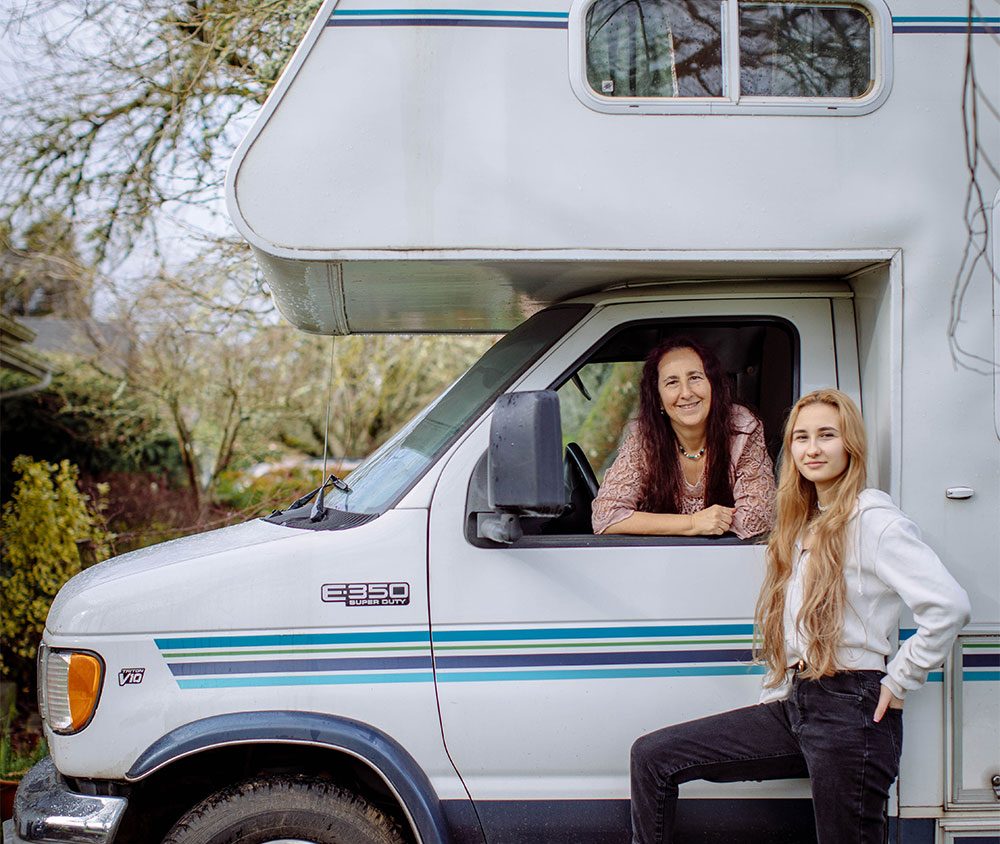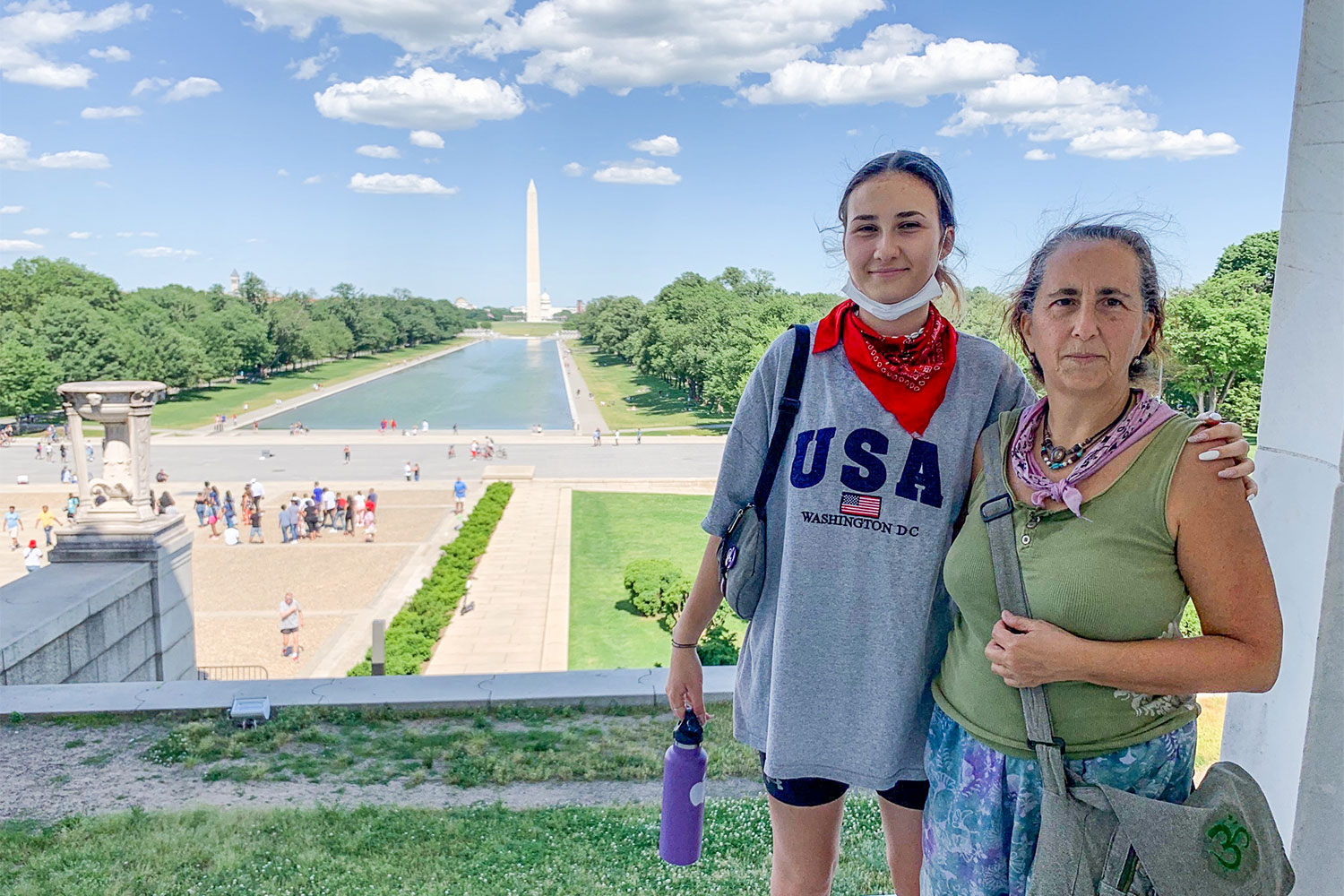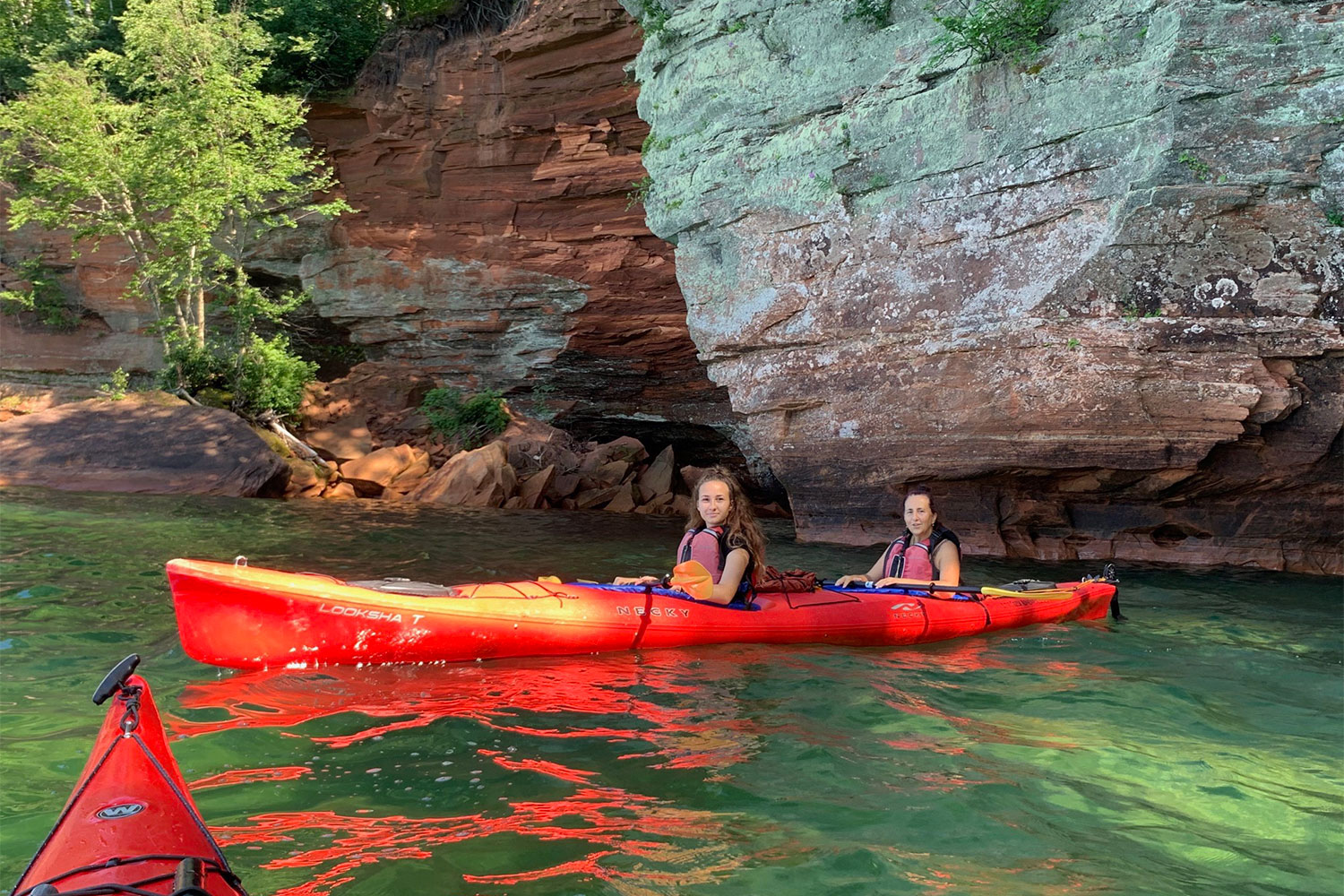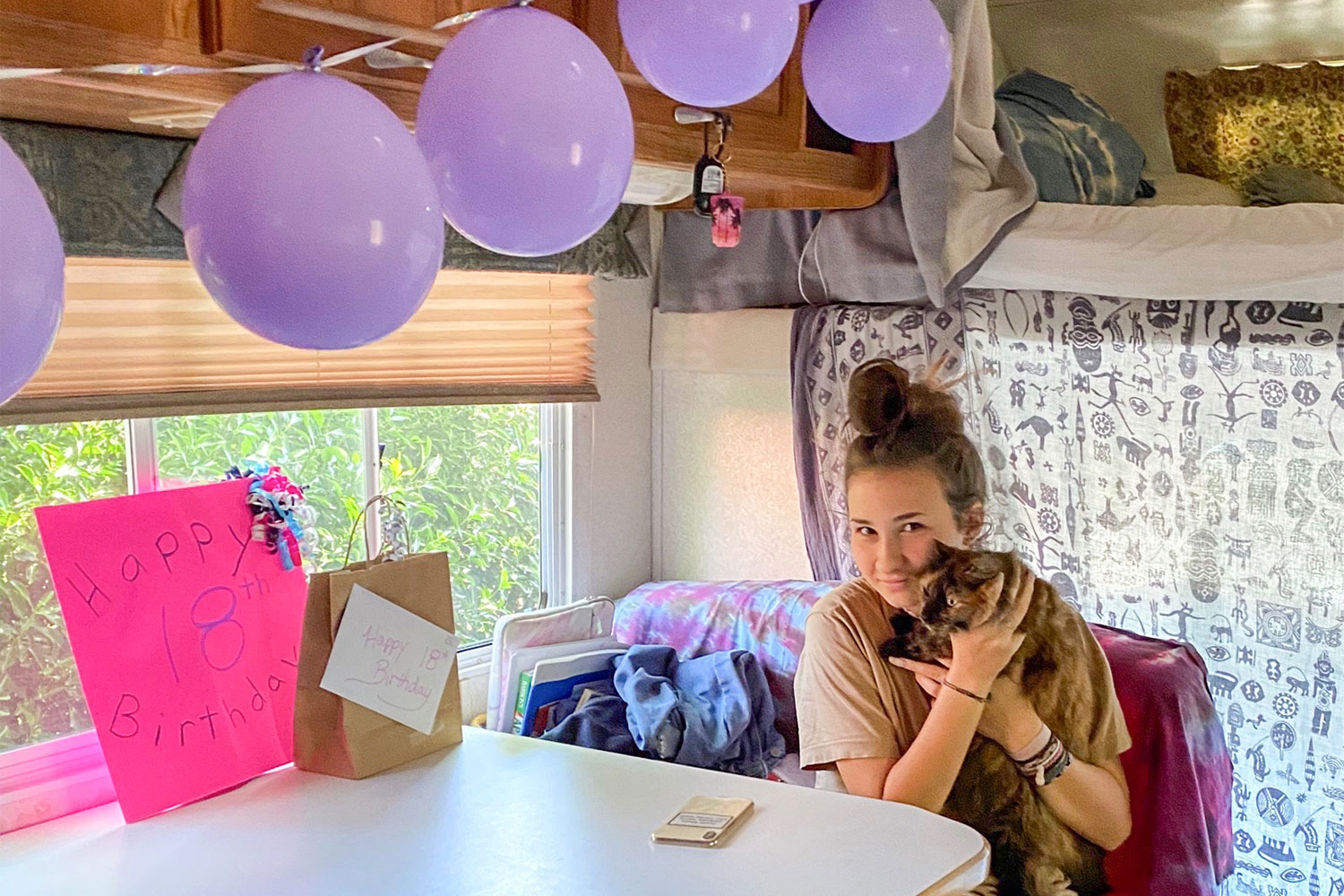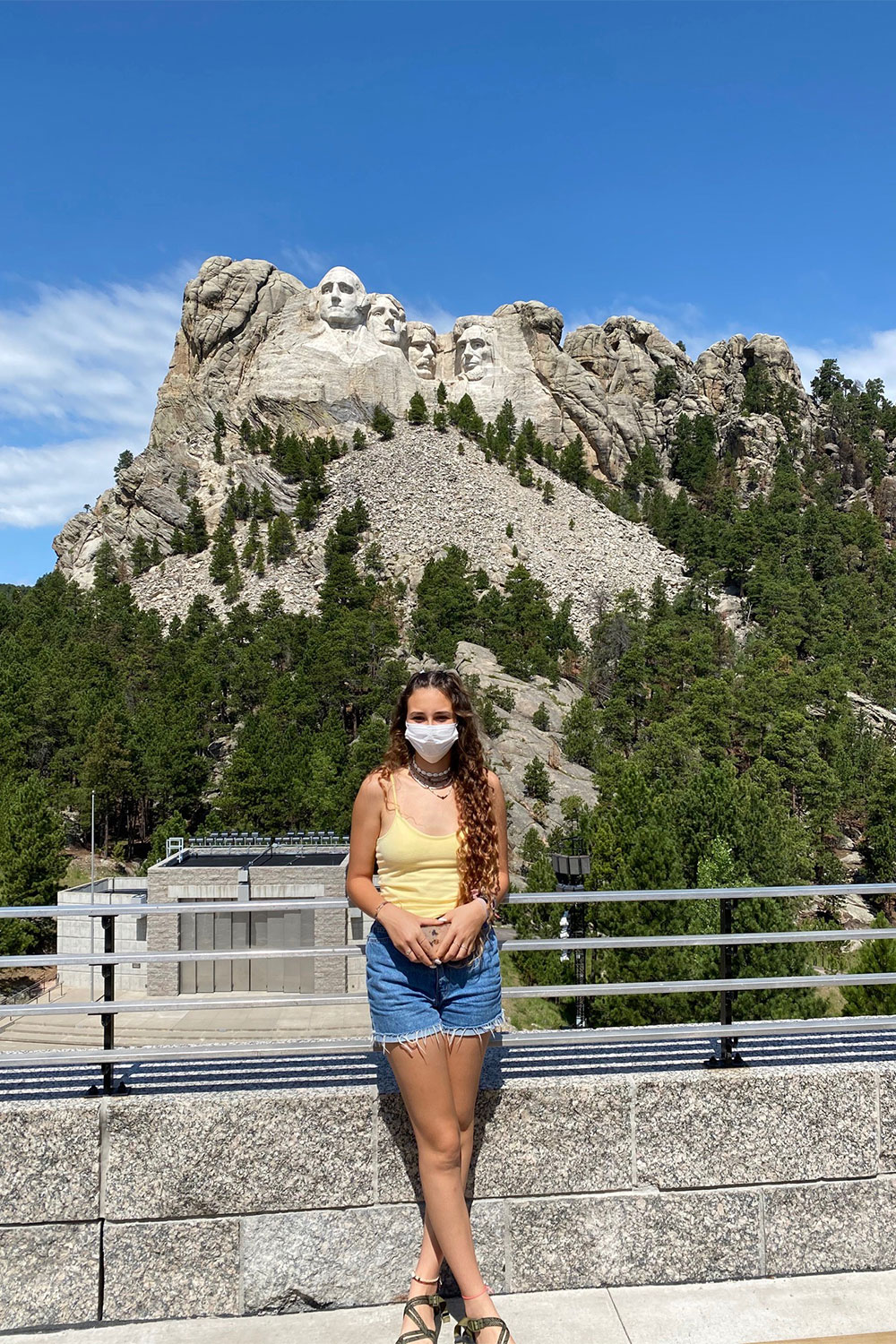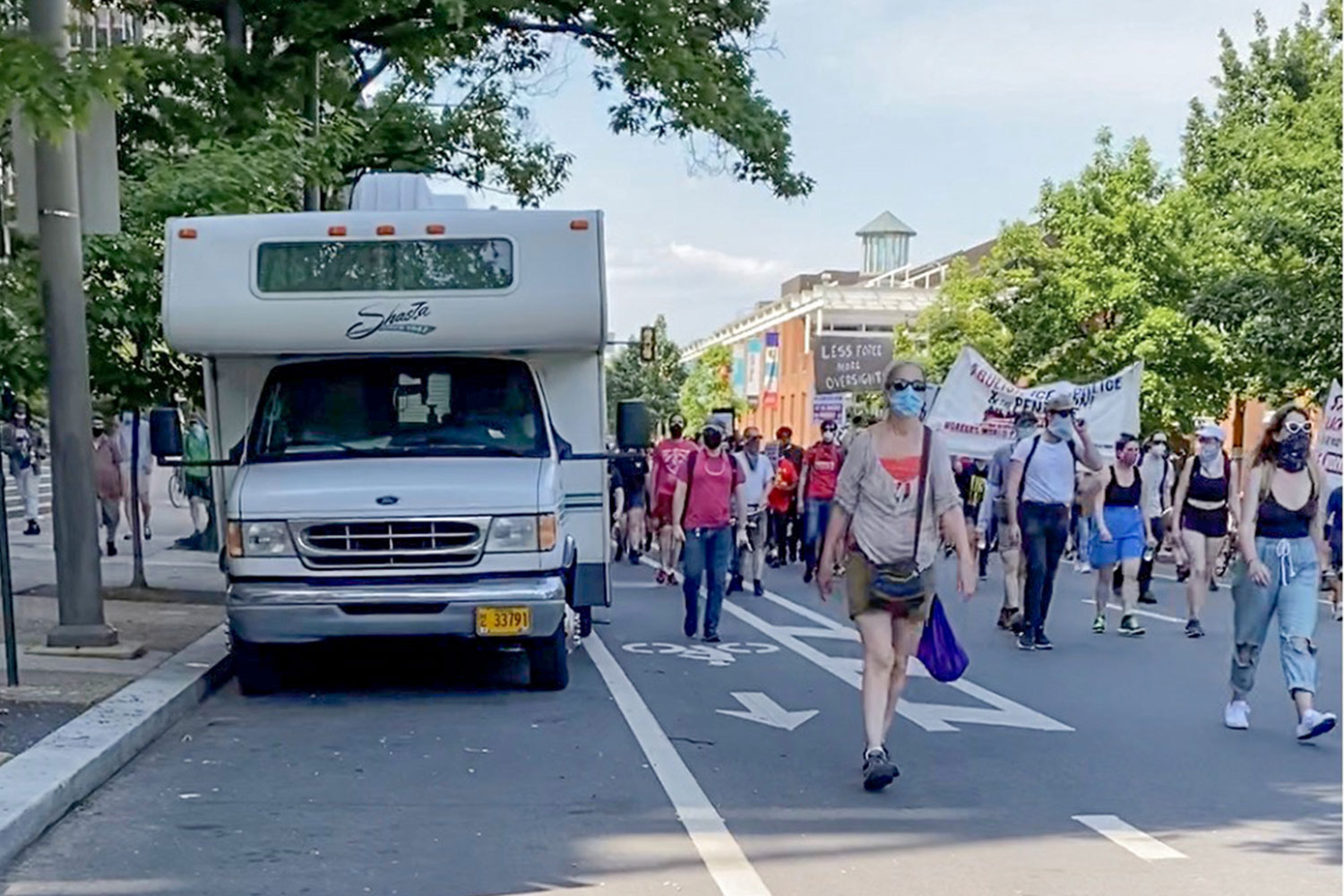Working from home has been nothing new for Diane Hediger and her daughter, Tatyana. Living and traveling in a motorhome hasn’t been, either.
The pair spent the first six months of the pandemic journeying the U.S. in their new recreational vehicle, visiting 48 states and documenting the trip with videos along the way. They were lucky enough to get a hold of one early in March, just shy of a months-long RV boom that continues to run local dealers dry with endless back orders.
Hediger first bought an RV in 1997 and lived in it for seven years before deciding, “That’s it, I’m done. I’m done with motorhomes.” She moved back and forth between Oregon and Switzerland with Tatyana, enrolling her in a local online high school after they returned to Eugene. “So when COVID hit, nothing changed,” says Hediger, who is a licensed psychologist in Eugene and has conducted all of her sessions online for the past six years, including with clients in Switzerland.
Tatyana was too young to remember much from their early years in the RV, but she heard the stories and one day suggested a road trip through all 50 states. “I thought it would be a good idea because she really didn’t know anything about the United States,” Hediger says.
They actually began their current U.S. expedition with a trip to Hawaii in 2019, where they stayed for three months. They then flew back to Oregon and bought a motorhome in Portland — a Shasta Freeport they called “Class C Queen” in March 2020, picking up a solar panel in Bend to charge their electronics. Hediger set two rules: That they had “to do one thing in each state,” she says, “we’re not just driving through,” and Tatyana was tasked with drawing a map of their cross-country tour — from Oregon, through the Midwest, then the South and back, followed by a run through the east and the North — bringing their cat, Chou Chou, along with them.
With many campgrounds closed due to COVID-19 restrictions, they relied on off-grid camping, which means they had no electric or water hookups. They were particularly struck by the emptiness of nearly every landmark they visited across the country.
Hediger called off their planned tour of the French Quarter in light of a Louisiana COVID spike following Mardi Gras, remaining instead in the RV and recording her video log from her driver’s side window. The Gulf Island National Seashore was closed, but Hediger got on her bike and rode in.
The pair walked the then darkened Las Vegas strip past hotel signs reading, “Be safe. See you soon.” While not pitch black, Hediger says, “The Strip did not look normal.” They later roamed the outside of the Grand Ole Opry in Nashville playing “Jolene” by Dolly Parton. In Washington, D.C., they recorded video of Black Lives Matter protests as helicopters hovered above, Hediger says. “My daughter thought that was exciting.”
Hediger had her sights set on Boston long before their arrival as the site of the Boston Tea Party, visiting the harbor where tax protesters dropped hundreds of chests full of tea in 1773. “This was an educational U.S. trip,” she says.
When they arrived back in Eugene in August 2020, Hediger told her daughter the trip was the best time of her life. “Just me and my daughter. She turned 18 in state number 35, which was New York.”
They covered 49 states, missing only Alaska. “I am gonna hold that over her head,” Hediger says with a laugh. “Honey, you have to do Alaska with me. You can do Alaska twice, but you have to do Alaska with me.”
Hediger and daughter were one of many Lane County families who turned to motorhomes during the pandemic. As other local businesses fought hard to stay afloat, RV dealers struggled to keep up with an unexpected demand that many remain behind on.
Like most in the RV industry, Gary Hoffman of RV Sales of Oregon spent the first 60 days of COVID-19 lockdown worrying about where business would be in a month. Then his RV sales business started running out of RVs.
“People after 90 days could no longer live together in their own house, they’re gonna kill each other,” Hoffman says. “They couldn’t travel abroad, no one was flying on planes. And this was the alternative, which is the RV lifestyle.”
“The run through the summer was tremendous,” he says. Dealers with retail customers were buying up motorhomes from RV Sales of Oregon in Eugene, which Hoffman owns with his wife, Stephanie Hoffman. But even though manufacturers were able to re-employ their workforce, many have been behind the curve by about 120 days with accessories and parts, and dealers have struggled to keep up with the demand.
A lack of inventory, though, is a good problem to have.
“That means that you sold a lot, but it’s a bad problem when you’re running out of inventory,” Hoffman says, “and the supply chain isn’t exactly 100 percent yet as far as getting things.”
More locals also turned to RVs following the Holiday Farm Fire in the fall. “It was immediate housing,” Hoffman says. “I think every one of us stepped up to do whatever we could do to put a roof over somebody’s head.”
Sutton RV sales manager Karen Tangle says the dealership hardly has any used RVs in stock. Newer models have been designed with desks built into the back end to accommodate remote work, and Tangle says she has seen a rise in customers planning to take road trips in the comfort of their RVs.
“People go out and spend time with their families, their loved ones, even their four-legged loved ones,” she says, “and go outside and get away from things and just have fun.”
Sales typically slow down every winter, but this season has been busier than years past with the Hoffmans’ dealership seeing an influx of first-time buyers. Hoffman says he is increasingly seeing people join a rental program to split time using an RV.
“I don’t like the fact that a pandemic makes us a stronger business,” Hoffman says. “But at the same time, we are offering people the ability to get out of their house and to go travel this country and not have to deal with the fear of airports and airplanes.”
